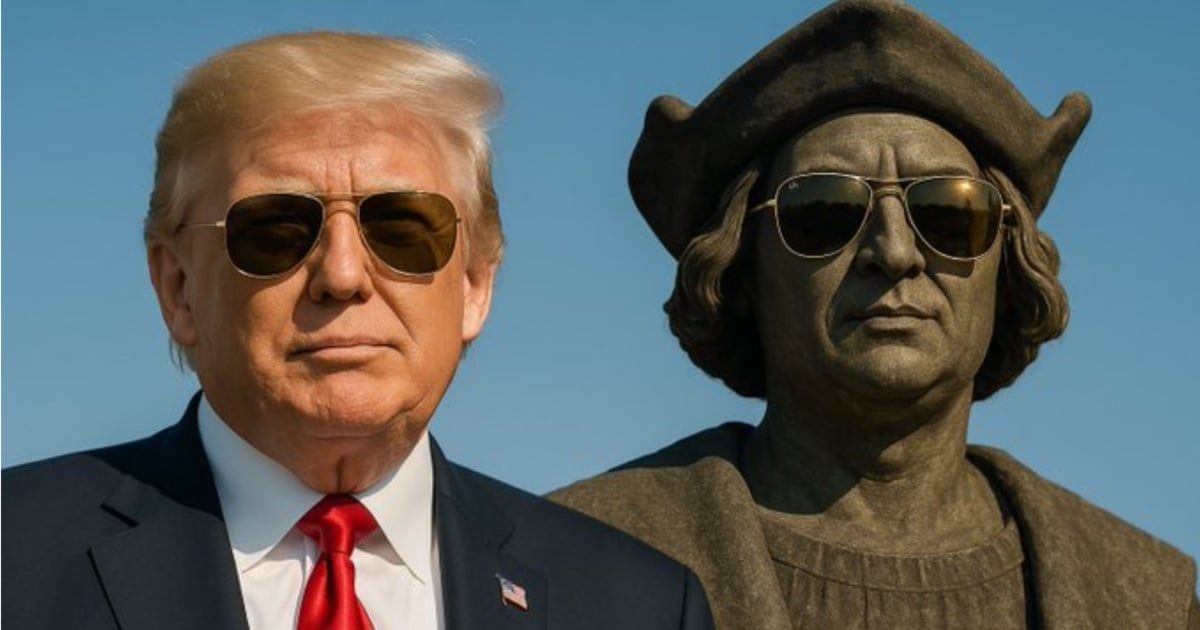Former U.S. President Donald Trump has vowed to revive Columbus Day "from the ashes" in a bid to "restore" the reputation of the contentious European explorer, Christopher Columbus. In a post on his social media platform, Truth Social, Trump expressed his commitment to promoting Columbus Day on the second Monday of October, reigniting a dispute with activists and several U.S. states that advocate for honoring Native Americans instead of celebrating the Italian explorer's legacy.
According to Trump, he will not follow his predecessor's practice of recognizing both Indigenous Peoples' Day and Columbus Day in October. He accused the Democrats of vilifying Columbus' legacy. "The Democrats have done everything in their power to destroy Christopher Columbus, his reputation, and all the Italians who hold him in high regard. They've torn down his statues and replaced them with 'WOKE' or, worse, nothing at all! Well, you'll be pleased to know that Christopher is making a grand comeback. I will reinstate Columbus Day with the same rules, dates, and venues as it has had for decades," Trump declared.
Joe Biden was the first president to commemorate Indigenous Peoples' Day, issuing a proclamation in 2021 that celebrated "the invaluable contributions and resilience of Indigenous peoples" and acknowledged "their inherent sovereignty." The proclamation noted that the United States was "conceived on a promise of equality and opportunity for all people," but that promise "has never been fully realized."
The movement to replace Columbus Day with Indigenous Peoples' Day has been developing for decades. Thanks to the advocacy of Native American activists, many states and localities now observe the second Monday of October as Indigenous Peoples' Day instead of—or in addition to—Columbus Day. More than a dozen states recognize some version of the holiday instead of Columbus Day. Over 100 cities have adopted it, responding to calls from Indigenous groups and other activists to abandon the celebration of Columbus, claiming that the Italian brought genocide and colonization to communities that had been thriving in the Americas for thousands of years.
Nevertheless, many across the nation continue to celebrate Columbus Day or Italian-American Heritage Day with pride. Although lawmakers in both the House and the Senate have introduced a bill that would establish Indigenous Peoples' Day as a federal holiday on the second Monday of October, replacing Columbus Day, the proposal has not yet been formalized.
The Navajo Nation, the largest Native American tribe in the U.S., has long expressed support for renaming the day. "Transforming Columbus Day into Indigenous Peoples' Day will encourage young Navajos to feel proud of their heritage and the beauty within them," stated Jonathan Nez, president of the Navajo Nation, in 2021, prior to Biden's first proclamation.
Understanding the Controversy Around Columbus Day
Why is Columbus Day controversial?
Columbus Day is controversial because many argue that Christopher Columbus' arrival in the Americas led to the colonization and genocide of Indigenous peoples. The holiday is seen by some as a celebration of these events, which is why there is a movement to replace it with Indigenous Peoples' Day.
What is Indigenous Peoples' Day?
Indigenous Peoples' Day is a holiday that celebrates and honors Native American peoples and commemorates their histories and cultures. It is intended to replace Columbus Day, shifting the focus from the European colonization of the Americas to the resilience and contributions of Indigenous communities.
How many states recognize Indigenous Peoples' Day?
More than a dozen states in the U.S. recognize some version of Indigenous Peoples' Day instead of Columbus Day. Additionally, over 100 cities have adopted the holiday in response to advocacy from Indigenous groups and other activists.
